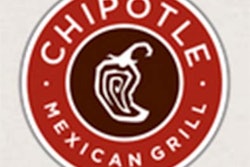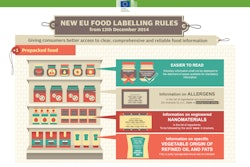
The Government Accountability Project (GAP) released evidence it has gathered from federal meat inspector whistleblowers who currently work at pork processing plants participating in a high-speed inspection pilot program. These whistleblowers voice concerns regarding the program and warn about the potential public health implications if this plan is instituted on a national level.
GAP is making publicly available affidavits from four U.S. Department of Agriculture (USDA) inspectors that illustrate serious concerns with the agency pilot program that increases the speed of processing lines and reduces the number of trained USDA inspection personnel in the hog plants.
Director of GAP's Food Integrity Campaign, Amanda Hitt, stated: “The USDA already refused to listen to its own inspectors when it implemented a similar high-speed inspection program for poultry late last year. Now the agency is poised to reduce oversight and increase line speeds at plants with hogs. It’s become abundantly clear that the Department of Agriculture is not interested in listening to the food safety concerns voiced by its own staff. Since the government doesn’t wish to heed whistleblowers, we are urging pork producers to reject sub-par meat inspection that places profit before public health.
GAP has launched a Change.org petition urging Hormel, one of the largest pork producers in the U.S., to abandon its use of high-speed inspection. The company owns three out of five hog plants currently participating in USDA's pilot program.
USDA inspectors stationed at the Hormel pilot plants have informed GAP that the high-speed inspection model will lead to more contaminated and defective products on consumers’ plates. Some of the problems that inspector affidavits raise include:
- Plant employees take over the duties of government inspectors. While federal employees (including at USDA) have whistleblower protections and can speak on behalf of the plant workers, Hormel employees are in the private sector and have inadequate legal safeguards. They cannot safely report food safety problems or stop the lines without fear of retaliation.
- Line speeds at pilot plants run up to 20 percent faster than those at plants operating under traditional inspection. Quicker speeds make it even more difficult for plant employees and USDA inspectors to detect contamination on carcasses.
- Company employees lack adequate training and often fail to identify signs of defects and contamination that could result in foodborne illness or unwholesome products. Inspectors in pilot plants report a higher level of zero-tolerance food safety hazards compared to plants operating under traditional inspection.
- USDA inspectors are only allowed to conduct inspections on a small sample of hogs. Samples in these plants are not representative, and don’t reflect true pathogen risk.
The affidavits released today can be found at FoodWhistleblower.org/StopHighSpeedHogs.
The names of three of the inspectors, and all identifying information of the specific plants, have been redacted at the request of the inspectors. However, these affidavits have the full backing and endorsement of GAP.



















